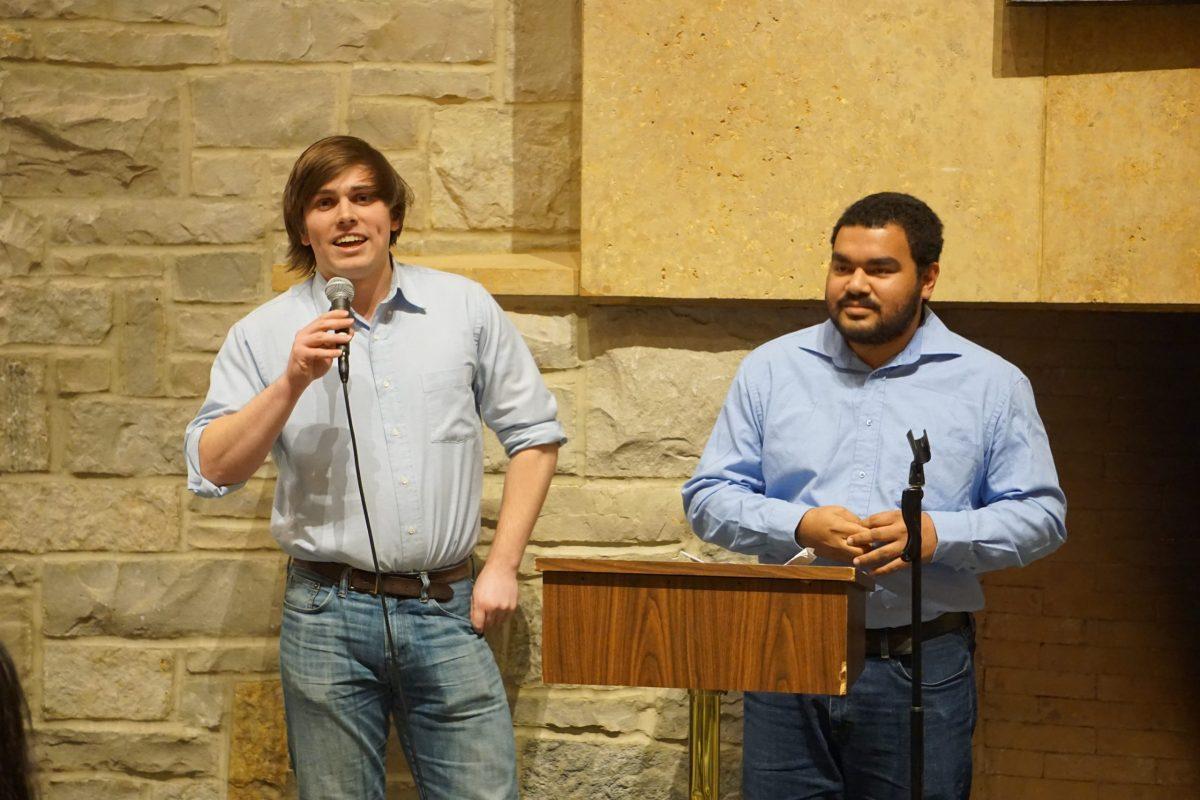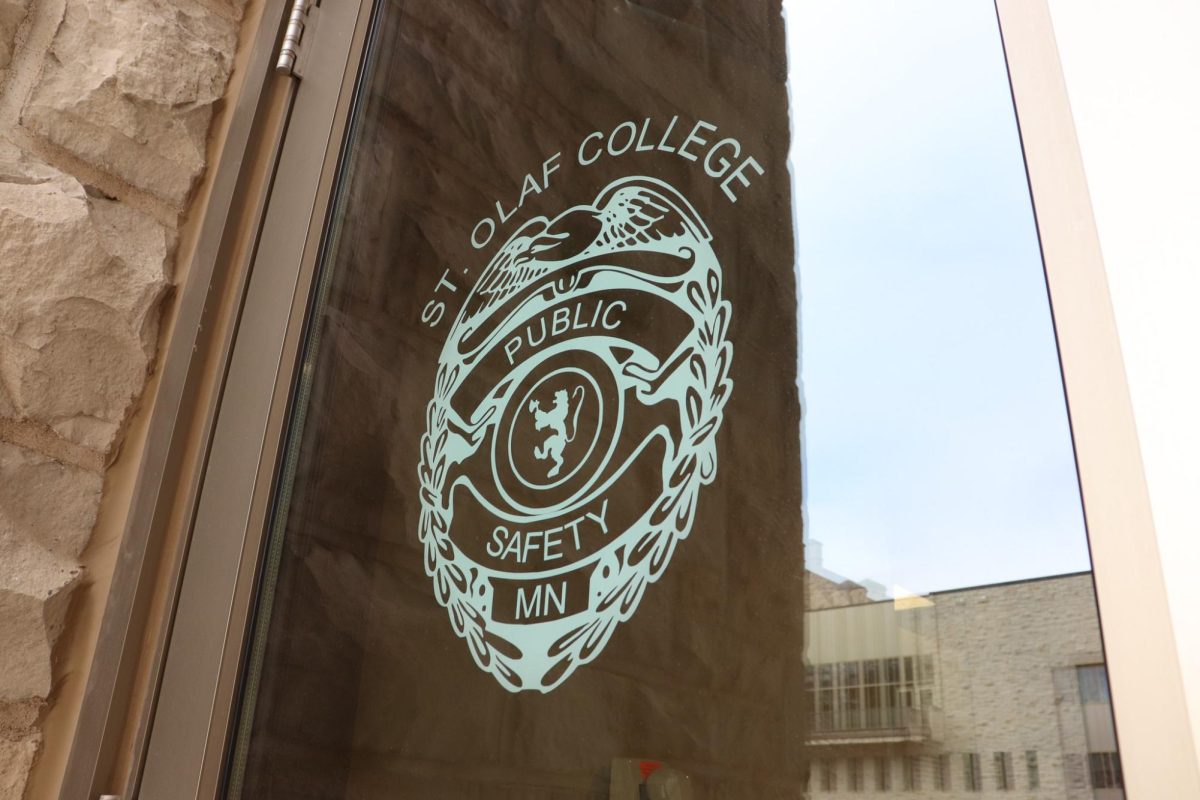Devon Nielsen ’20 and Ariel Mota Alves ’20 ran unopposed on Wednesday for next year’s Student Government Association (SGA) President and Vice President offices. Originally, Nielsen and Mota Alves had competition from Marie Kadurira ’20 and Abdelkarim Khalid ’20, but the pair withdrew their application after a few days.
With multiple marketing strategies ranging from stickers to tabling, the pair is running their campaign on the platform of being accessible, friendly and ready to make change. Their goals range from tackling race on campus to implementing a textbook bank. The textbook bank would be modeled after the one at Carleton College and would be a space where textbooks are made more accessible for those who are unable to afford them.
Nielsen and Mota Alves, roommates of three years, started thinking about their campaign in their sophomore year, inspired by the SGA president at the time. They began the conversation on how they would like to better St. Olaf and make changes for the student body. Two years later, the two will have the opportunity to do just that.
“It was through our conversations between different groups and each other about the issues we see in the news, in the world and how it affects St. Olaf that we decided we wanted to help represent the voices of St. Olaf and make beneficial changes,” Nielsen said.
Announcing their candidacy Wednesday March 13 on Instagram, they also posted the 12 main policy changes they plan to focus on. One of their more unique policy proposals involves the dry campus policy, which prohibits the “possession, distribution or consumption of alcoholic beverages” on College property.
The school’s reasoning behind the policy is to “promote a caring environment, while providing an atmosphere for study, learning, work and wellness,” according to the St. Olaf website. Since they do not think it is feasible to overturn the policy, Nielsen and Mota Alves hope to instead start a conversation on its impact on the St. Olaf campus and experience.
“It’s something we’ve been talking a lot about, we want to take a critical look at it as it’s ingrained into St. Olaf culture,” Mota Alves said. “At the very least we want to start a conversation about this. We want to look at how it affects the safety of St. Olaf students and if it’s the most effective.”
Their hopeful platform extends beyond the dry campus policies and to other topics such as sexual assault and mental health on campus. Using their experience as Junior Counselors for residence life last year, Nielsen and Mota Alves want to include the male student body in engaging with these subjects.
“We want to use SGA as a platform to include male students as advocates for SARN and mental health, to include them in the conversations and shred stigmas that surround males in those topics,” Mota Alves said.
They also note that SGA has been perceived as unapproachable and inaccessible by some students.
“We are planning to increase Senate visibility through publishing Senate agendas publicly and being an overall friendly face on campus,” Mota Alves said.
“I would hope by this time next year, we hopefully will have accomplished 80 percent of our platforms and have created positive change on campus,” Nielsen said.
As SGA election season comes to a close this week with voting on Wednesday, candidates for eight SGA positions ran unopposed
Current SGA Vice President Abbie Haug ‘19 said this unusual trend could be caused by student “burnout,” among other factors. Between going abroad, applying for graduate school and preparing for tests like the MCAT and GRE, students seem to be over-committed and cannot find time to run for and fill SGA positions, Haug said.
Haug said SGA conducted an audit to gauge student involvement in the governing body. Haug said internal functioing of SGA will undergo a substantial rescructuring before the fall 2019 semester, and that the changes were necessary due to IRS regulations that stipulate students must be paid by the hour.
“This is a forced decision by the IRS, but with that it’s making us think really intentionally about how many hours everyone is spending on SGA and how to be most efficient and productive and have a better work-life balance.”
The audit also helped current SGA members reflect and think critically about ways they will be able to change the SGA structure based on student responses, Haug said.
Nielsen and Mota Alves also have plans to make SGA more accessible to students. St. Olaf can expect a changing SGA and Senate in response to the low number of candidates who participated in this year’s election and the new goals of incoming leaders.
[email protected]
Reporting contributed by Avery Ellfeldt ([email protected])






